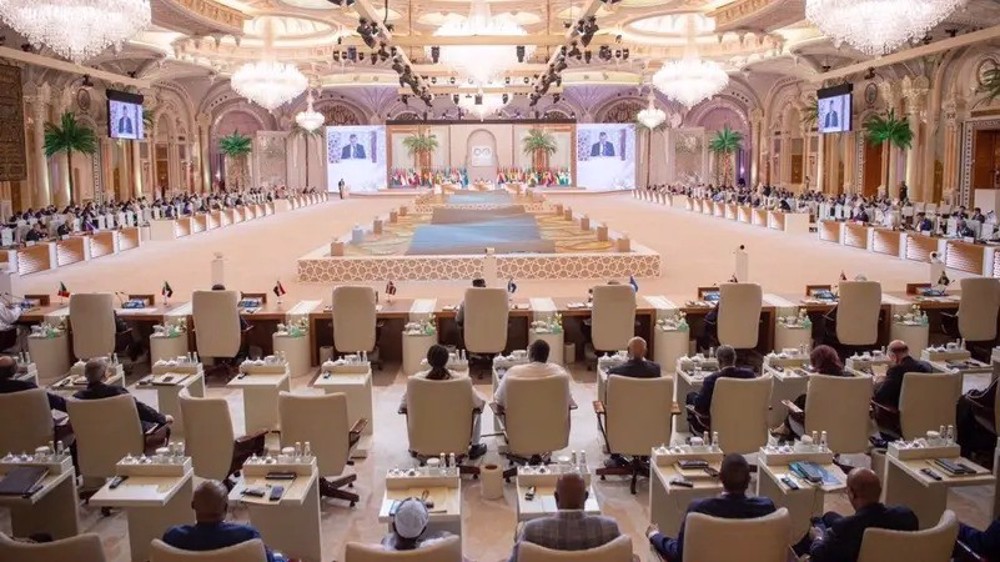Saudi to hold 'very limited' hajj over pandemic
Saudi Arabia on Monday announced it would hold a "very limited" hajj this year, with pilgrims already in the kingdom allowed to perform the annual ritual as it moves to curb the coronavirus pandemic.
The hajj, one of the five pillars of Islams and a must for able-bodied Muslims at least once in their lifetime, represents a major potential source of contagion as it packs millions of pilgrims into congested religious sites.
But the decision to scale back the hajj, which last year drew 2.5 million pilgrims, is fraught with political and economic peril and comes after several Muslim nations pulled out of the ritual.
The kingdom's hajj ministry said the pilgrimage will be open to various nationalities already in Saudi Arabia, but it did not specify a number.
"It was decided to hold the pilgrimage this year with very limited numbers... with different nationalities in the kingdom," the official Saudi Press Agency said, citing the ministry.
"This decision is taken to ensure the hajj is performed in a safe manner from a public health perspective... and in accordance with the teachings of Islam in preserving lives."
The decision to limit the event comes as Saudi Arabia struggles to contain a spike in infections, which have now risen to some 161,000 cases and more than 1,300 deaths.
The announcement to hold a limited hajj could disappoint millions of Muslim pilgrims around the world who often invest their life savings and endure long waiting lists to make the trip.
But it would likely appease Muslims who feared the pilgrimage would entirely be cancelled for the first time in the kingdom's modern history.
"Saudi Arabia has chosen the safest option that allows it to save face within the Muslim world while making sure they are not seen as compromising on public health," Umar Karim, a visiting fellow at the Royal United Services Institute in London, told AFP.
"But there are lots of unanswered questions: What is the exact number of pilgrims that will be allowed? What is the criteria for their selection? How many Saudis, how many non-Saudis?"
Saudi authorities said the hajj ministry will hold a news conference on Tuesday to flesh out the details.
'Difficult year'
The decision risks annoying hardline Muslims outside the kingdom for whom religion trumps health concerns.
It could also trigger renewed scrutiny of the Saudi custodianship of Islam's holiest sites -- the kingdom's most powerful source of political legitimacy.
A series of deadly disasters over the years, including a 2015 stampede that killed up to 2,300 worshipers, has prompted criticism of the kingdom's management of the hajj.
A watered-down hajj would also represent a major loss of revenue for the kingdom, which is already reeling from the twin shocks of the virus-induced slowdown and a plunge in oil prices.
The smaller year-round umrah pilgrimage was already suspended in March. Together, they add $12 billion to the Saudi economy every year, according to government figures.
"This has been a really difficult year, with Saudi Arabia facing declining revenue from all sectors -- oil, tourism, domestic consumption, and now umrah and hajj," Karen Young, a scholar at the American Enterprise Institute, told AFP.
A full-scale hajj with millions of pilgrims was unlikely after authorities advised Muslims in late March to defer preparations due to the fast-spreading disease.
Earlier this month, Indonesia, the world's most populous Muslim nation, emerged as one of the first countries to withdraw from the pilgrimage after pressing Riyadh for clarity. An Indonesian minister called it a "very bitter and difficult decision". Malaysia, Senegal and Singapore followed suit with similar announcements.
(Source: AFP)
Iran Deputy FM: ICC arrest warrants ‘great victory' for Palestine supporters
Nov. 21: ‘Axis of Resistance’ operations against Israeli occupation
VIDEO | Israeli forces storm West Bank’s Jenin again, target civilians
Iran activates advanced centrifuges after IAEA's 'unjust' resolution
VIDEO | Press TV's news headlines
Iran FM: Response to Israeli aggression 'inevitable'
VIDEO | Iran eases the rules for exporting hand-woven carpets
VIDEO | Intl. Day for the Elimination of Violence against Women: A stark reminder of Gaza women









 This makes it easy to access the Press TV website
This makes it easy to access the Press TV website